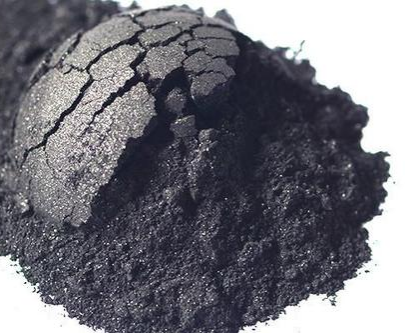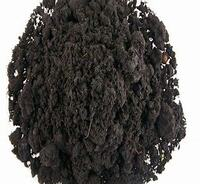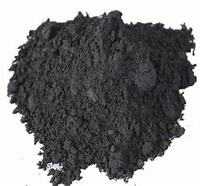1. Introduction
When you think of cutting-edge manufacturing, 3D printing probably comes to mind—but not all 3D printing is created equal. In high-stakes industries like aerospace, defense, and biomedical engineering, the magic ingredient isn’t plastic filament or resin. It’s titanium powder. Specifically engineered for precision, strength, and biocompatibility, titanium powder has become the backbone of metal additive manufacturing. From custom hip implants to jet engine components, this niche material is quietly revolutionizing how we build complex, high-performance parts.

2. Why Titanium Powder? The Rise of Metal Additive Manufacturing
Traditional machining wastes up to 90% of raw titanium due to its hardness and cost. Additive manufacturing flips that model—building parts layer by layer with minimal waste. But not just any titanium works. You need fine, consistent, and often spherical titanium metal powder optimized for laser or electron beam melting. That’s where specialized forms like gas atomized titanium powder and HDH (Hydride-Dehydride) titanium powder come in.
- Spherical titanium powder flows smoothly in printers, ensuring even layers.
- Gas atomized titanium powder offers high purity and excellent packing density.
- HDH titanium powder is more affordable but less ideal for high-resolution prints.
3. Key Types of Titanium Powder Used in 3D Printing
Not all titanium powders are interchangeable. The most widely used alloy is Ti6Al4V (also called Ti64), prized for its strength-to-weight ratio and corrosion resistance. Pure titanium powder (Grade 1 or 2) is preferred for medical implants due to its biocompatibility. Then there are advanced variants like titanium nitride powder and titanium carbide powder—used more as coatings or additives than primary printing materials.

For industrial buyers, terms like ‘titanium powder for 3D printing price’ or ‘Ti6Al4V powder price’ matter deeply. Prices vary based on particle size distribution, oxygen content, and morphology. On average, titanium powder price per kg ranges from $300 to $800+, depending on grade and supplier. Meanwhile, niche materials like titanium diboride powder (TiB2 powder) or titanium boride powder serve in composites or wear-resistant coatings—not mainstream printing.
4. Real-World Applications Beyond Prototyping
In aerospace, GE Aviation uses titanium 3D printing powder to produce fuel nozzles that are 25% lighter and five times more durable than cast counterparts. In medicine, surgeons implant patient-specific cranial plates made from pure titanium powder—reducing rejection risks and speeding recovery.
Even defense contractors rely on titanium powder additive manufacturing for lightweight armor components and drone parts. What makes this possible? Consistency. A reliable titanium powder supplier ensures every batch meets ASTM or ISO standards for flowability, particle size (typically 15–45 microns), and chemical composition.

5. Comparing Titanium with Other Advanced Metal Powders
While titanium dominates in weight-sensitive applications, engineers sometimes consider alternatives like molybdenum powder or tungsten powder. Molybdenum metal powder (including MoS2 powder and TZM powder) excels in high-temperature environments—think furnace parts or rocket nozzles. Tungsten powder, with its extreme density and melting point, is used in radiation shielding and kinetic penetrators.
However, neither matches titanium’s biocompatibility or corrosion resistance. Plus, tungsten powder price per kg can exceed $100, and molybdenum powder price hovers around $50–$150/kg—making titanium a better fit for many structural applications despite its higher titanium metal powder price.
6. Sourcing and Cost Considerations
If you’re looking to buy titanium powder, know your specs. Are you after spherical titanium powder for laser melting? Or HDH titanium powder for lower-cost binder jetting? Reputable international titanium powder suppliers offer certifications, particle analysis, and lot traceability.
Watch out for misleading terms like ‘titanium flash powder’ (a pyrotechnic mix) or ‘burnt titanium powder coat’—these aren’t suitable for printing. Also, avoid confusing titanium dioxide powder (TiO2 powder)—common in sunscreens and paints—with metallic titanium powder. They’re chemically and functionally worlds apart.
For budget planning, check current titanium powder cost trends. While titanium powder for 3D printing price remains high, economies of scale and recycling programs are slowly bringing costs down. Some vendors even offer titanium powder for sale with volume discounts or sample kits.
7. Conclusion
Titanium powder isn’t just another industrial material—it’s a gateway to next-generation engineering. Whether you’re developing life-saving implants or next-gen aircraft, choosing the right titanium alloy powder (like Ti64) and understanding its properties can make or break your project. As additive manufacturing matures, expect wider adoption, smarter recycling, and more competitive titanium powder price per kg benchmarks. For now, partnering with a trusted titanium powder supplier remains key to unlocking its full potential.
Our Website founded on October 17, 2012, is a high-tech enterprise committed to the research and development, production, processing, sales and technical services of ceramic relative materials such as Titanium. Our products includes but not limited to Boron Carbide Ceramic Products, Boron Nitride Ceramic Products, Silicon Carbide Ceramic Products, Silicon Nitride Ceramic Products, Zirconium Dioxide Ceramic Products, etc. If you are interested, please feel free to contact us.
